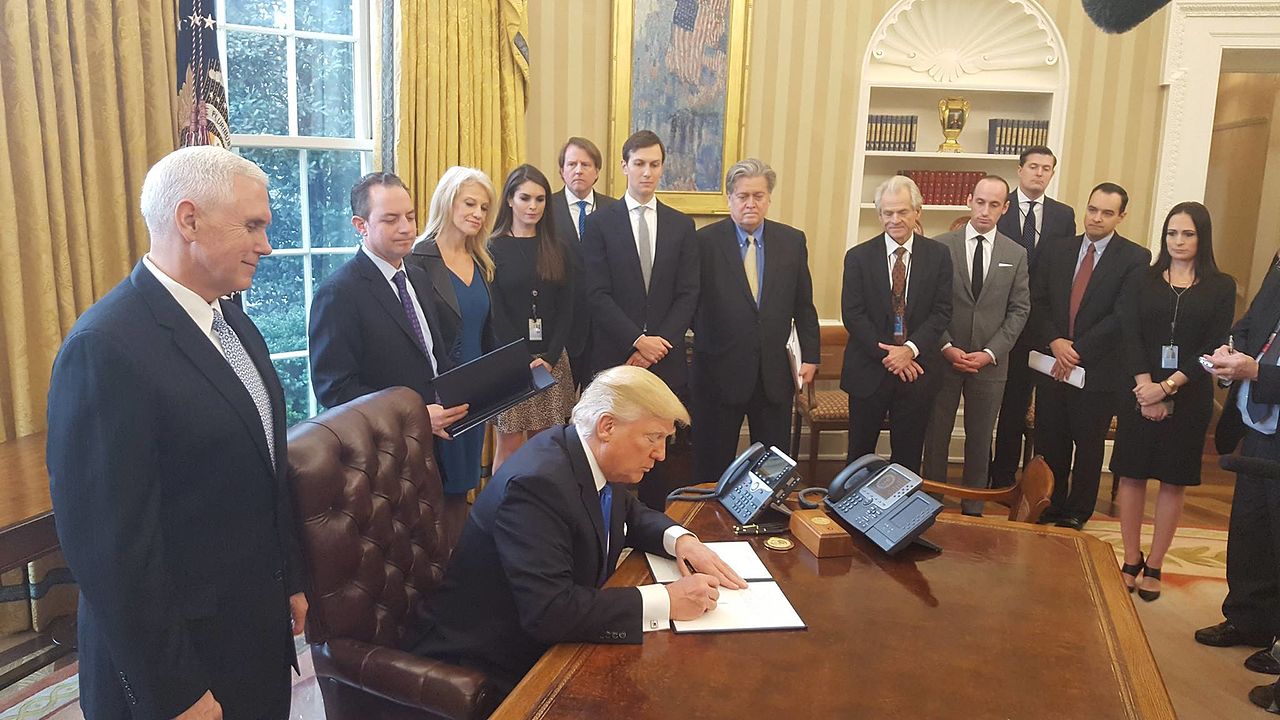President Trump’s threat last week to withdraw federal funding from the University of California, Berkeley for what he claimed was a freedom of speech violation has called into question whether universities should fear losing their funding during his presidency.
UC Berkeley canceled a speech by controversial Breitbart contributor Milo Yiannopoulos on Feb. 1 after about 150 masked rioters began destroying property with rocks and commercial grade fireworks. University police evacuated Yiannopoulos and school officials announced the campus was on lockdown. The damage caused by the riots totaled an estimated $100,000.
After hearing about the cancellation, Trump tweeted on Thursday: “If U.C. Berkeley does not allow free speech and practices violence on innocent people with a different point of view — NO FEDERAL FUNDS?”
For the government to withdraw federal funding over a First Amendment dispute, Congress would have to sign off on it.
[Read more: Milo Yiannopoulos on canceled Terps for Trump event: UMD is “going to suffer for it”]
Yiannopoulos was similarly scheduled to speak at the University of Maryland in October — a move that caused non-violent pushback from students — but the event fell through after the sponsor group, Terps for Trump, failed to file the necessary paperwork and submit the $2,000 deposit by deadline.
This university had required heightened security costs because of prior rioting at Yiannopoulos’ talks, according to an Eventbrite email sent to ticketholders in October. The Breitbart editor called it the “oldest trick in the book,” adding that security concerns are “a way of universities to un-invite speakers without outright banning them.”
Yiannopoulos had also responded on Facebook to Trump’s Thursday statement, saying, “Cut the whole lot, Donald J. Trump,” and, “UC Berkeley should have all federal funding cut until it can demonstrate its commitment to the First Amendment.”
Like UC Berkeley and other public research institutions, this university relies heavily on federal funding. Federal grants and contracts made up 17 percent of the fiscal 2017 operating budget, according to the university’s department of budget and fiscal analysis. A loss of this funding could lead to a deficit just more than $344 million.
Federal financing also impacts some students directly. Twenty-one percent of undergraduates at this university were Pell Grant recipients during the 2014-15 school year, according to information from the U.S. Education Department. If these federally funded grants were withdrawn, more than 5,700 students would be affected.
University President Wallace Loh wrote in a 2014 op-ed article for the Baltimore Sun that federal appropriations for the university “are essential to the quality of life, economic vitality and security of our nation.”
Loh added that the university continues to seek out all available monetary backing options, but it is also “primed to make the most of federal research dollars.”
“Federal appropriations for education and research are irreplaceable as drivers of our nation’s innovation,” Loh wrote.
Since his initial tweet Thursday, Trump has not followed up on the issue.



